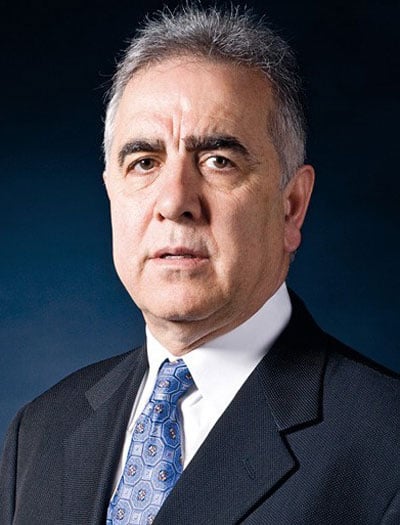By Harut Sassounian
Publisher, The California Courier
Pinar Tremblay, a Turkish reporter for Al-Monitor news website, exposed Pres. Recep Tayyip Erdogan’s recent announcement to legalize the plantation of cannabis (a form of marijuana).
Tremblay wrote in the January 24, 2019 issue of Al-Monitor that the Turkish leader has been an outspoken opponent of selling or using alcohol, tobacco, and drugs due to his Islamic beliefs, however, he has now decided to advocate the plantation of cannabis in order to boost the country’s failing economy and provide farmers with additional income on the eve of municipal elections in Turkey.
Tremblay explained that for decades the Turkish government burned cannabis fields using the excuse that this was a fight against the Kurdistan Workers’ Party (PKK). Erdogan is now presenting the plantation of cannabis as resistance to the West!
“Drug wars are enforced with harsh punishment for users and dealers. [Turkish] government spending to prosecute drug dealers has gradually increased, reaching up to $140 million. That is precisely why Erdogan’s advocacy for cannabis cultivation in his campaign speeches surprised audiences,” wrote Tremblay.
The Turkish government relaxed restrictions on planting hemp since 1990. The Parliament adopted even more liberal laws in September 2016. “It is already legal to grow hemp in 19 cities, but you need government permits,” according to Tremblay.
Erdogan has suddenly realized that there is a big profit to be made by the cultivation of marijuana, at a time when the Turkish economy is sinking. As the saying goes, “desperate times call for desperate measures!” On January 9, 2019 Erdogan criticized the “enemies of Turkey who pretend to be friends,” stating that they have forced Turkey to end its cannabis production. Amusingly, Erdogan recalled that in his ancestral hometown of Rize the locals used to make underwear from hemp which is more absorbent than any other material!
According to Tremblay, most Turks interpreted Erdogan’s statement “‘enemies who pretend to be friends’ as a reference to the United States, which pressed to ban opium poppy production in 1971. Up until then, Turkey was a major producer of legal opium, but farmers were known to produce also significant amount of the plants illegally. Currently, Turkey has one alkaloid processing plant in Central Anatolian province of Afyon, which means ‘opium’ in Turkish. Afyon is known for its high-quality poppy seed production. The factory produces ingredients to be used in prescription drugs.”
The Turkish media began obediently promoting Erdogan’s declaration about the benefits of cannabis production to the health sector and the economy. Sabah newspaper even wrote about the use of hemp by the Ottoman Turkish Navy.
“Turkish government television TRT started airing infomercials about cannabis while referring to it as an ‘Anatolian plant’ and elaborating on countless uses of hemp. Islamist media particularly was quite eager to back Erdogan. For example, Mehmet Toprak, a columnist for Dirilis Postasi, wrote a piece titled ‘Cannabis will make the US dollar weapon explode in their own hands.’ Toprak emphasized that ‘President Erdogan’s decision on cannabis production is a turning point in our history. It is as revolutionary as the July 15 [2016 failed coup] victory. This decision shows us how crucial it is to stand behind Erdogan for the future of our country and the Muslim lands,’” Tremblay reported. “Cannabis production is now presented as a form of national resistance to the West,” stated a Turkish Agriculture Ministry official.
However, several Turkish agricultural experts warned that the production of cannabis could have an adverse effect on the growth of food items. One government employee, an expert in this field, was quoted by Tremblay stating: “food prices have skyrocketed, particularly in the last year. For example, onion [which is a staple ingredient for most recipes in Turkish cuisine] prices went up 185% in 2018. While its population is increasing, Turkey is producing fewer basic crops like wheat, barley, chickpeas, beets, beans and potatoes now than it did five years ago. Plus, cotton and flax production, just like hemp, has been decreasing in volume gradually over the last 15 years. This can be blamed on the government’s lack of planning for the impact of climate change on crops; its policies to lift tariffs on these goods, encouraging cheaper imports; and the rise in pesticide and fertilizer prices, making production more expensive. The government has failed to support farmers almost every step of the way, leaving them alone to the whim of the weather, cheap exports and inadequate storage disasters.”
Another expert at an Istanbul university told Tremblay: “These great promises on cannabis cultivation as a form of ultra-nationalistic stand against the West are exciting for the crowds … but how about other staple goods people need to survive? The arable land and number of farming families are dwindling. In 2017, meat [red and white] consumption in Turkey per person was averaging around 30 kilograms. In the European Union, that average is almost 70 kilos per person. We are much more dependent on grains and vegetables in our diet. Now if we switch to cannabis, what will people eat?”




















































